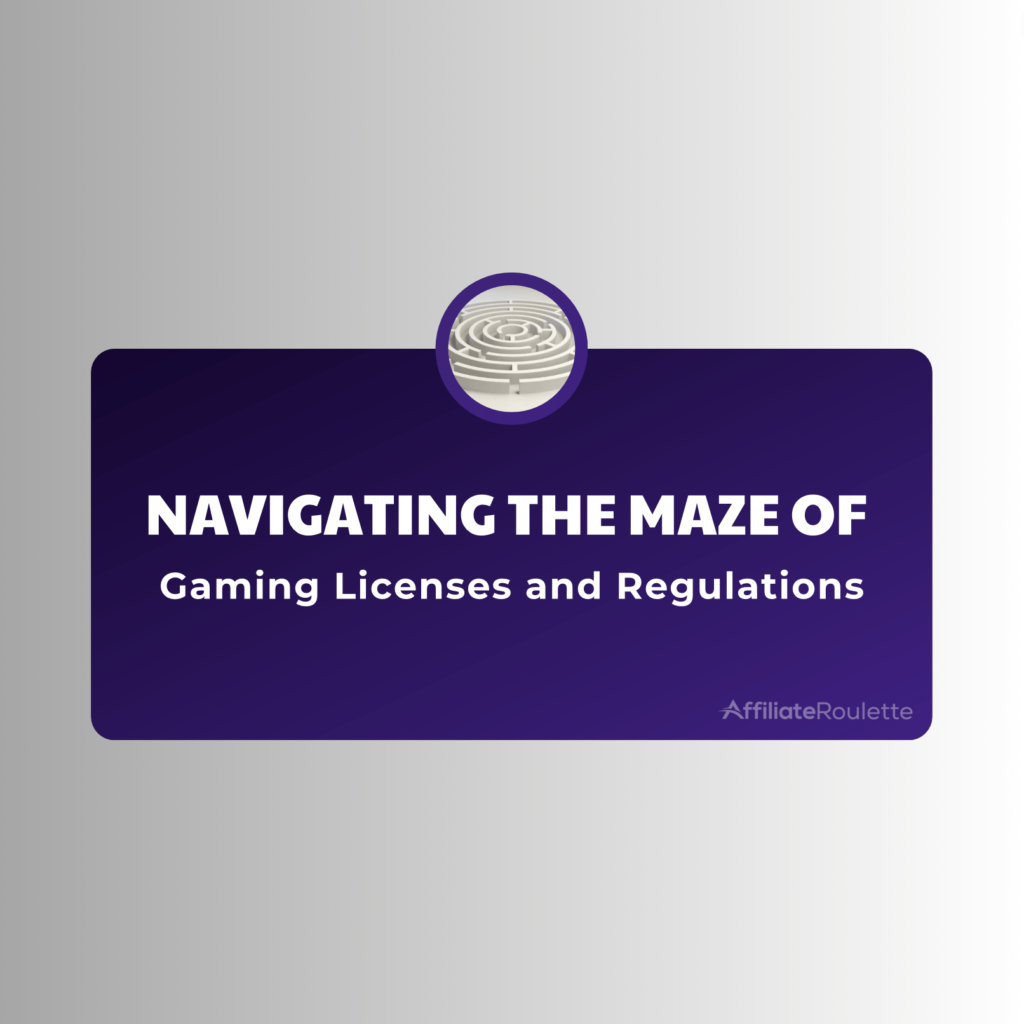Navigating the Maze of iGaming Licenses and Regulations

Navigating the Maze of iGaming Licenses and Regulations
The iGaming industry has seen remarkable growth in recent years, attracting players and entrepreneurs alike. However, this industry operates within a complex web of licenses and regulations that vary from one jurisdiction to another. In this article, we will guide you through the maze of iGaming licenses and regulations, helping you understand the critical aspects, key licensing authorities, and the importance of regulatory compliance for a successful iGaming venture.
Understanding iGaming Licenses
iGaming licenses are legal permissions granted to operators, allowing them to offer online gambling services within specific jurisdictions. These licenses come with various conditions and requirements that operators must meet to ensure fairness, security, and responsible gambling. There are several types of licenses that operators can obtain:
1. Gaming License: This license permits operators to offer casino games, including slots, table games, and live dealer games.
2. Sports Betting License: Operators offering sports betting services, including sportsbooks and betting exchanges, require this type of license.
3. Poker License: For operators focusing on online poker, a specific poker license may be necessary.
4. Lottery License: Some jurisdictions have separate licenses for online lotteries and scratch cards.
5. Combined License: In certain jurisdictions, operators can obtain combined licenses, allowing them to offer a variety of iGaming services.
Key Licensing Authorities
Various regulatory bodies worldwide oversee the issuance and enforcement of iGaming licenses. Here are some prominent ones:
1. Malta Gaming Authority (MGA): Located in Malta, the MGA is one of the most reputable licensing authorities in the iGaming industry. It regulates a wide range of online gaming activities and has stringent standards for operator integrity and player protection.
2. United Kingdom Gambling Commission (UKGC): The UKGC regulates online gambling in the United Kingdom, known for its strict regulations and emphasis on responsible gambling.
3. Alderney Gambling Control Commission (AGCC): Alderney, a British Crown Dependency, has a well-respected regulatory body, the AGCC, which licenses online gambling operators.
4. Gibraltar Regulatory Authority (GRA): Gibraltar is another popular jurisdiction for iGaming operators, and the GRA licenses and regulates companies based there.
5. Curacao eGaming: Curacao is a popular choice for many iGaming operators due to its relatively lenient licensing requirements and tax benefits.
Navigating Regulatory Compliance
Achieving and maintaining regulatory compliance is a top priority for iGaming operators. Non-compliance can result in hefty fines, loss of licenses, and damage to an operator’s reputation. Here are some key aspects of regulatory compliance:
1. Know Your Jurisdiction: Operators must understand the specific regulations in the jurisdiction(s) where they operate. These regulations can vary significantly, affecting licensing costs, tax obligations, and player protection measures.
2. Anti-Money Laundering (AML) and Know Your Customer (KYC): Operators must implement robust AML and KYC procedures to prevent money laundering and ensure player identity verification.
3. Responsible Gambling: Promoting responsible gambling practices is essential. Operators must provide tools for players to set limits, self-exclude, and seek help for problem gambling.
4. Data Protection: Strict data protection regulations require operators to safeguard player data and privacy.
5. Fair Play and Game Testing: Ensuring the fairness of games through regular testing and audits is a regulatory requirement in most jurisdictions.
6. Advertising and Marketing: Adherence to advertising standards and responsible marketing practices is crucial to avoid regulatory issues.
Conclusion
Navigating the maze of iGaming licenses and regulations is a critical aspect of operating in this industry. Understanding the types of licenses available, key licensing authorities, and the importance of regulatory compliance is essential for any iGaming venture.
The iGaming landscape is ever-evolving, with new jurisdictions regulating online gambling and existing ones updating their laws. Staying informed, adapting to changes, and prioritizing regulatory compliance will not only ensure legal operations but also build trust with players and partners, ultimately leading to a successful and sustainable iGaming business.



